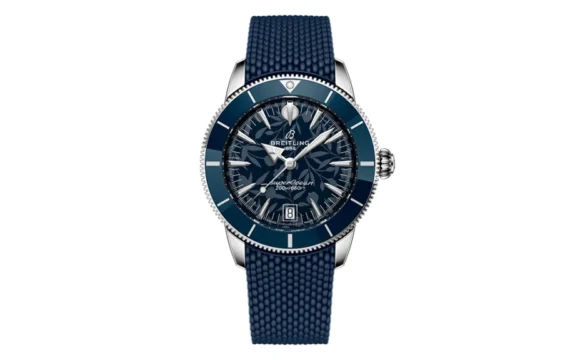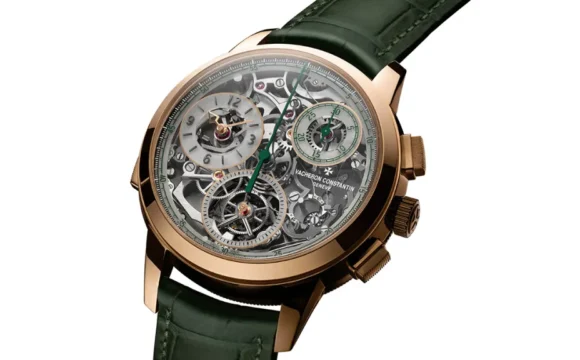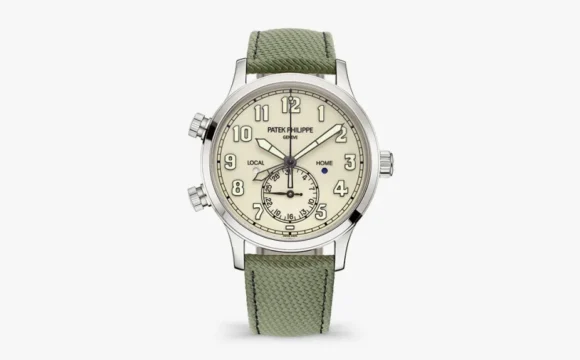Johann Rupert ประธานของ Richemont เชื่อว่าถึงเวลาแล้วที่โลกแห่งนาฬิกาควรคืนพระราชบัญญัติอุปสงค์และอุปทาน
มหาเศรษฐีชาวแอฟริกาใต้ ซึ่งก่อตั้งกลุ่มบริษัทหรูสวิสในปี 1988 กล่าวว่าผู้ผลิตนาฬิกาไฮเอนด์ควรลดอุปทานของนาฬิกาเพื่อต่อต้านตลาดที่อ่อนตัว ตามรายงานของ Bloomberg Richemont เป็นผู้นำหลายบริษัทนาฬิกาชั้นนำ เช่น Vacheron Constantin, IWC, Jaeger-LeCoultre และ Cartier ซึ่งหมายความว่าการเปลี่ยนแปลงกลยุทธ์การผลิตอาจส่งผลกระทบต่อนักสะสมทั่วไปได้อย่างแท้จริง
Rupert บอกผู้ถือหุ้นในการประชุมผู้ถือหุ้นประจำปีของ Richemont ว่าความต้องการนาฬิกาทั่วโลก “ผ่านจุดบูมไปแล้ว” โดยยอดขายที่ลดลงในจีนแผ่นดินใหญ่และฮ่องกงมีส่วนทำให้ปีที่ผ่านมาซบเซา “เราควรระวังในการพยายามไล่ตามปริมาณ” เขากล่าวในเจนีวาเมื่อวันพุธ
Rupert กล่าวต่อว่าชื่นชมคู่แข่งในการควบคุมผลผลิต “เรามีความสัมพันธ์ที่ใกล้ชิดกับคู่แข่งรายย่อยและเรารู้ว่าพวกเขากำลังทำอะไรและพวกเขากำลังดำเนินการอย่างมีความรับผิดชอบโดยจำกัดการผลิต" เขาอธิบาย
ผู้ผลิตนาฬิกามักจำกัดการผลิตและการจัดจำหน่ายเพื่อเพิ่มความต้องการของผู้บริโภค Patek Philippe และ Rolex ควบคุมผลผลิตของตนอย่างเข้มงวดในรูปแบบที่แบรนด์ที่เป็นกลุ่มไม่สามารถทำได้ Richemont ถูกควบคุมผ่านทรัสต์ครอบครัวที่มีหุ้นเสียงส่วนใหญ่ ดังนั้นหุ้นจึงซื้อขายได้อย่างเปิดเผยและบริษัทต้องให้ข้อมูลทางการเงินโดยละเอียด ผู้ผลิตนาฬิกาสวิสรายย่อยรายอื่น “ไม่มีผู้ถือหุ้นให้รายงาน” Rupert กล่าวเสริม
การส่งออกนาฬิกาสวิสทำสถิติสูงถึง 31 พันล้านดอลลาร์ในปี 2023 แต่ยอดขายชะลอตัวลงอย่างมากในปีนี้ ฟรังก์สวิสที่แข็งแกร่งผลักดันราคาของนาฬิกาและลดผลกำไรสำหรับผู้ผลิต Bloomberg ตั้งข้อสังเกต
เป็นผลให้ อุตสาหกรรมนาฬิกาสวิสกำลังหันไปขอความช่วยเหลือทางการเงินจากรัฐบาล ผู้ผลิตนาฬิกา เช่น Girard-Perregaux และ Ulysse Nardin กำลังใช้โปรแกรมของรัฐที่อนุญาตให้พวกเขาลดกำลังคนและลดการผลิตโดยไม่มีการเลิกจ้างถาวร ตามรายงานของ Bloomberg (โครงการดังกล่าวเห็นว่ารัฐสวิสครอบคลุมค่าจ้างของคนงานสูงถึง 80 เปอร์เซ็นต์ เนื่องจากบริษัทลดกะและชั่วโมงการทำงาน) ผู้จัดหานาฬิกาบางรายยังได้รับการสนับสนุนจากรัฐบาลหลังจากที่ผู้ผลิตตัดคำสั่งซื้อ
ข่าวดีก็คือตลาดสำหรับนาฬิกาที่ใช้แล้วเป็นประโยชน์ต่อนักสะสม ราคาของนาฬิกาที่ใช้แล้ว เช่น นาฬิกาสปอร์ต Rolex ยังคงลดลง ดังนั้น คุณสามารถซื้อได้ในราคาที่ถูกมาก นั่นเป็นเรื่องที่ดีอย่างมาก
จากบทความโดย Rachel Cormack
Richemont chairman Johann Rupert thinks it’s time for the watch world to reinstate laws of supply and demand.
The South African billionaire, who founded the Swiss luxury conglomerate in 1988, has said high-end watchmakers should reduce the supply of timepieces to counter the softening market, as reported by Bloomberg. Richemont helms several horological heavyweights, such as Vacheron Constantin, IWC, Jaeger-LeCoultre, and Cartier, meaning that a change in production strategy could genuinely impact everyday collectors.
Rupert told shareholders at Richemont’s annual general meeting that the global demand for watches “has gone past the boom," with sluggish sales in mainland China and Hong Kong contributing to a downright dull year. “One should be cautious in just trying to pursue volume," he said in Geneva on Wednesday.
Rupert went on to praise rivals for curbing output. “We have a close relationship with the private competitors and we know what they are doing and they are acting very responsibly by constraining production," he explained.
Watchmakers have long limited production and distribution to fuel consumer demand. Patek Philippe and Rolex have exerted ironclad control over their output in ways the group-owned brands cannot. Richemont is controlled through a family trust that has a majority of the voting shares, so the stock is publicly traded and the company must provide detailed financial updates. Other private Swiss watchmakers “don’t have shareholders to report to," Rupert adds.
Swiss watch exports hit a record $31 billion in 2023, but sales have slowed significantly this year. The strong Swiss franc has pushed up watch prices and crimped profits for producers, Bloomberg notes.
As a result, the Swiss watch industry is turning to the government for financial aid. Watchmakers such as Girard-Perregaux and Ulysse Nardin are using a state program that allows them to furlough employees and reduce production without permanent job cuts, according to Bloomberg. (The program sees the Swiss state cover up to 80 percent of workers’ wages as companies eliminate shifts and work hours.) Some watch suppliers have also taken up government support after manufacturers cut orders.
The good news is the market for pre-owned watches is in the collector’s favor. Prices of second-hand timepieces, such as Rolex sports watches, keep dropping, so you can score a real bargain. That’s quite the silver lining.
From the article by Rachel Cormack








